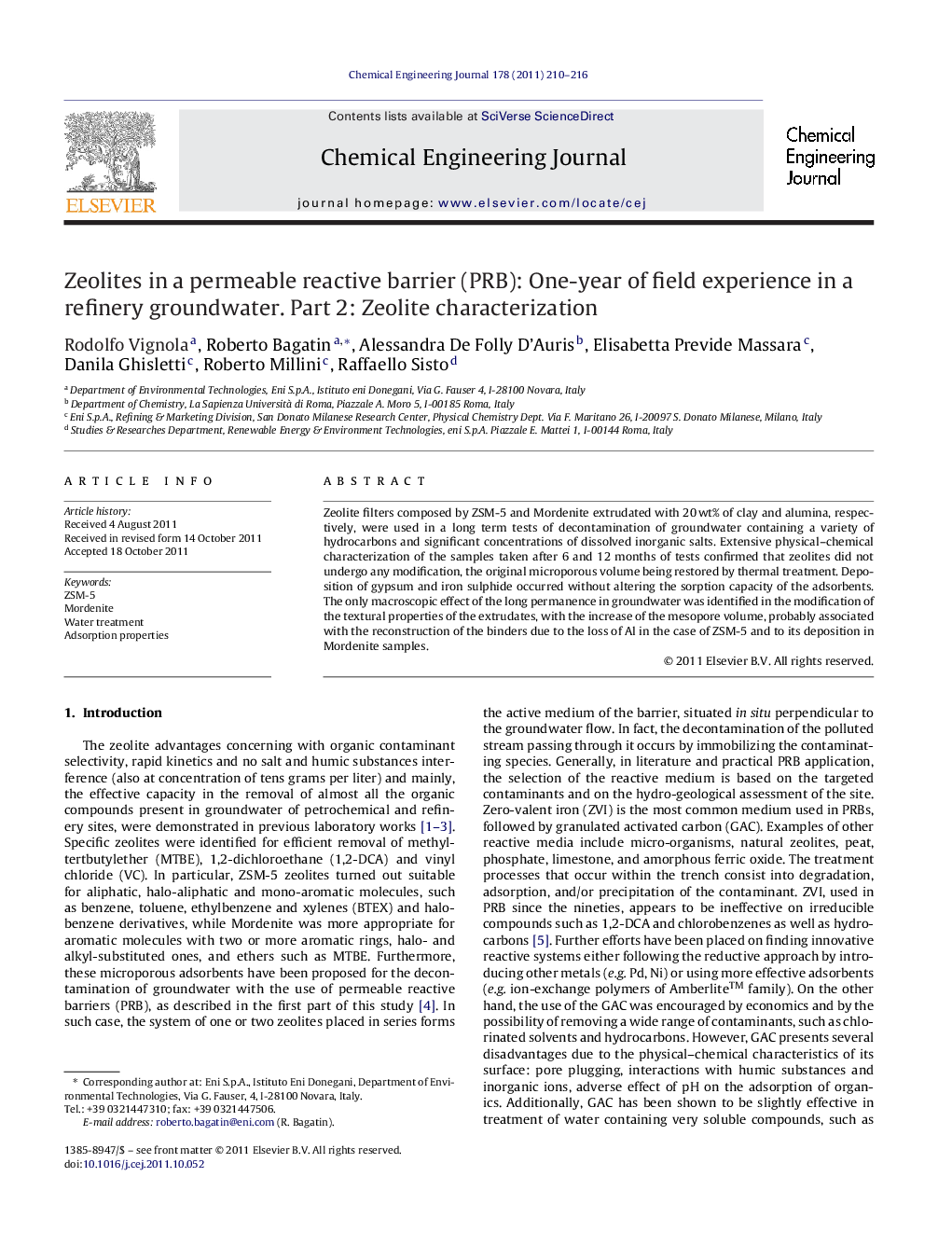| Article ID | Journal | Published Year | Pages | File Type |
|---|---|---|---|---|
| 150465 | Chemical Engineering Journal | 2011 | 7 Pages |
Zeolite filters composed by ZSM-5 and Mordenite extrudated with 20 wt% of clay and alumina, respectively, were used in a long term tests of decontamination of groundwater containing a variety of hydrocarbons and significant concentrations of dissolved inorganic salts. Extensive physical–chemical characterization of the samples taken after 6 and 12 months of tests confirmed that zeolites did not undergo any modification, the original microporous volume being restored by thermal treatment. Deposition of gypsum and iron sulphide occurred without altering the sorption capacity of the adsorbents. The only macroscopic effect of the long permanence in groundwater was identified in the modification of the textural properties of the extrudates, with the increase of the mesopore volume, probably associated with the reconstruction of the binders due to the loss of Al in the case of ZSM-5 and to its deposition in Mordenite samples.
Graphical abstractFigure optionsDownload full-size imageDownload as PowerPoint slideHighlights► Zeolites were used as adsorbents in a permeable reactive barrier (PRB). ► After one-year of field treatment in PRB the zeolites were structurally characterized. ► They resulted unmodified by the treatment. ► ZSM-5 results more suitable for the adsorption of light hydrocarbons. ► Mordenite is more effective against heavy hydrocarbons and MTBE.
